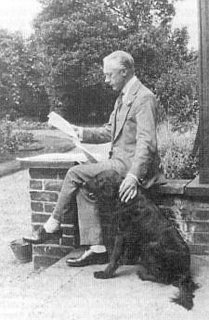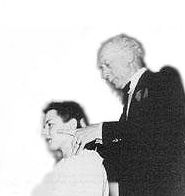I'm really curious how people figure out they are inappropriately reacting rather than using their creative potential. It seems a person more commonly can get used to their own habits so completely that the sensation of doing these habits completely disappears into identity. There is more of a reason to have no reason to change, so how do some people do it?
There's a survival likelihood to choose what is certain in preserving the status quo. If you try to do things differently, it will feel so unfamiliar that it will feel as if it's "not you." So it's more likely that you won't allow yourself to continue doing what is new, but only what feels familiar.
On the other hand, there is also a survival drive towards the desire for doing something new, but it's not as strong. If the daring think less of consequences or guess wrong, they probably died more often and perhaps didn't pass on their genes.

When we design a habit, we're adapting to circumstances or learning. When learning, we make a habit so abilities we want to have become innate and later can be used as if they were second-nature. When compensating, we're designing a habit to avoid pain. Adapting allows skill, learning and compensation to mitigate circumstances and is mainly regarded as a human advantage.
However this blessing of being able to adapt seems to have a built-in design flaw. The flaw is that performing a habit dulls sensation so we don't know how or what we are doing - a habit is automatic. We often train ourselves to perform a new habit without being able to sense what "standing orders" our habits are already doing. It can get confusing - even painful, if we add habit onto habit, without undoing the previous inappropriate habits. As people get older, it's all too common to pull our own body in opposite directions without knowing how we're contributing to our own limitations.
The ways around it that I know work best involve deliberately disassembling the habits. In fact, it seems to work best to not have a new habit in mind to replace what you are intentionally taking apart. If you just remove what seems to be in the way that is outdated, your natural ability to respond more appropriately will resume. The way you balance and move seems to be self-correcting.
To do this takes a willingness to experiment and to feel a little strange. The reason you feel so weird is because your old habits seem to try to protect you by insisting that they already have programming to deal just fine with this situation.
Turns out, rather than an 'awareness' challenge, getting past this pitfall of self-preservation involves more of a timing challenge. If you use your observation or awareness BEFORE you have made any changes to actually stop the habit, you will probably only notice what is wrong, but not the habit that is making it happen. (Or you'll notice nothing special because your sensitivity to self-orientation has disappeared from indiscriminate repetition.) If you want an example of this, trying walking and asking yourself if you notice anything about the way you walk. Usually there is no comment, or you only notice something wrong that 'sticks out' that's objectionable.
Please resist trying to directly remedy your objection. Most people only notice their how they look in a mirror. We're going to find out what people are doing with themselves to make themselves appear that way. Usually people offer themselves no consideration of their means and what they are doing, only their intention. We're going to close the gap between intention and action.
We need some criteria, and some comparisons to watch when we're looking for changes. Efficiency, education & effortlessness are good. Pain, stiffness & limitations are bad.
You can use the sensual world to give you feedback to tell you if there is a change. For instance, if you notice your feet are hitting the floor hard when you walk, then you have a way to see how changing the way you walk affects this feature. The sensual world also can show you when you are doing the old same thing so you can remember that you wanted to respond differently. I guess that's where the awareness comes in, remembering to notice.
Stopping the habit works best if you can interrupt the habit before it gets going full strength. Sometimes that's just before you go into action.
To notice something new about yourself or your objectives, here's the sequence that I've found that works best to get insights.
1. First, you're willing to experiment.
2. You already know what you don't want to do and what your habits are that contribute to going wrong.
3. Say you've figured out a strategy to stop or go in a direction deliberately away from those habits.
4. If you THEN if you use your observation/awareness after you've stopped, you're more likely to notice something new at that point about your suspended objective.
Descriptive ability is a skill factor. After you have stopped doing a habit, you will usually sense differences in comparison to whatever you have been doing. For instance, if you have been habitually leaning forward, you will feel as if you are leaning back when you have factually stopped leaning forward. Being able to describe these differences is how you can know what is, in fact, really happening. Sometimes these differences will feel really paradoxical and positively strange, because you will see that you are both leaning backward and also standing up more vertically. Because of these paradoxes, it's tricky to stop the habit resuming control. It takes practice to sustain doing any activity without the old habits.
It seems to take a sort of wisdom and perspective of how to intepret the results of your experimenting when you feel wierd and unfamiliar after making a significant change. Interpretation and validation of what is happening is why you need other points of view and the sensual world. it's really fun to experiment by trying a video camera or a mirror.





